Video from Parliament: "Will the government intervene to bring Mr Assange home?" - Dr. Monique Ryan


As the embedded YouTube video below shows, yesterday, on 30 November 2022, in the House of Representatives, during question time , Dr Monique Ryan, the independent member for the north-eastern Melbourne metropolition seat of Kooyong, pointed out to Prime Minister Anthony Albanese that only political intervention will free Julian Assange.



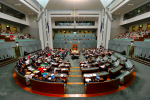 Next week, both the House and the Senate are sitting. We must demand that, this time, its gag on discussion about Julian Assange be lifted.
Next week, both the House and the Senate are sitting. We must demand that, this time, its gag on discussion about Julian Assange be lifted.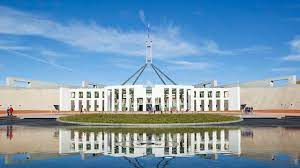

 This article points to the utter failure of Australia's parliamentary system to deal with Julian Assange's predicament and the associated public concern.
This article points to the utter failure of Australia's parliamentary system to deal with Julian Assange's predicament and the associated public concern.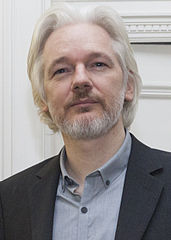
 If this is true, I wonder if Liz Truss was voted in, and out, just in order to do this for the British elite with oil and gas investments. Few people understand that what is happening to Europe is what happened to North Korea and Cuba when they lost access to cheap fossil fuel from the USSR.
If this is true, I wonder if Liz Truss was voted in, and out, just in order to do this for the British elite with oil and gas investments. Few people understand that what is happening to Europe is what happened to North Korea and Cuba when they lost access to cheap fossil fuel from the USSR. Most middle class Australians don't expect ever to finish up in prison, and they show little interest in prison conditions. A lot of people believe that all people imprisoned in Australia are imprisoned because they deserve to be. Even if this were so, which it is not (see list of research articles end of this article), removal of freedom is not supposed to be exacerbated by additional horrible conditions.
Most middle class Australians don't expect ever to finish up in prison, and they show little interest in prison conditions. A lot of people believe that all people imprisoned in Australia are imprisoned because they deserve to be. Even if this were so, which it is not (see list of research articles end of this article), removal of freedom is not supposed to be exacerbated by additional horrible conditions.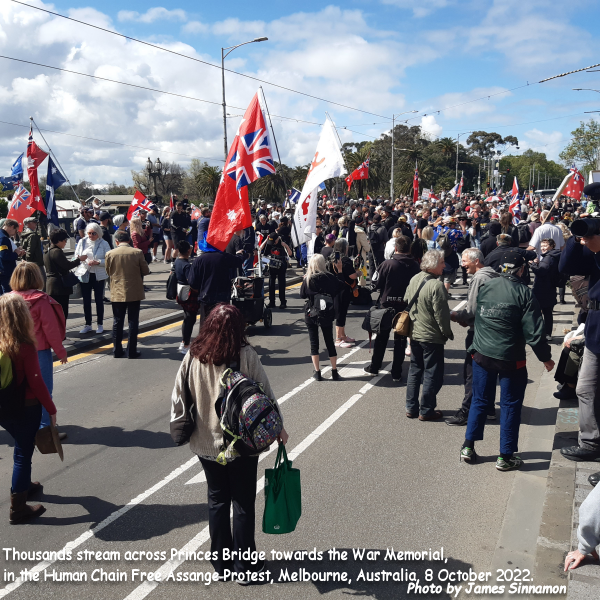 The Human Chain for Assange was attended by more people than we have seen at any Free Assange demonstration in Australia to date. SBS says, "Thousands," Victoria Police estimate 3000.
The Human Chain for Assange was attended by more people than we have seen at any Free Assange demonstration in Australia to date. SBS says, "Thousands," Victoria Police estimate 3000. One fact, apparently not properly appreciated amongst the vast popular movement in support of Julian Assange, both in Australia and overseas, is that, in spite of the fact that the Government of Prime Minister Anthony Albanese could make the British Government release Julian Assange today, it has chosen not to.
One fact, apparently not properly appreciated amongst the vast popular movement in support of Julian Assange, both in Australia and overseas, is that, in spite of the fact that the Government of Prime Minister Anthony Albanese could make the British Government release Julian Assange today, it has chosen not to.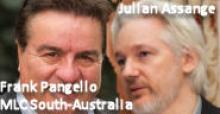 All Labor and Liberal members voted down this simple but inspiring and compassionate motion. It was like watching people walk past a person trying to help someone bleeding on the road after a traffic accident, saying that maybe the bleeding had gone on 'long enough' but it wasn't up to them to help.
All Labor and Liberal members voted down this simple but inspiring and compassionate motion. It was like watching people walk past a person trying to help someone bleeding on the road after a traffic accident, saying that maybe the bleeding had gone on 'long enough' but it wasn't up to them to help. Title was South Australia's Parliament to debate Julian Assange's plight this coming Wednesday - Why won't Canberra? Update, Sun 6 Nov 2022: Parliament will be sitting Monday, Tuesday, Wednesday and Thursday this coming week.
Title was South Australia's Parliament to debate Julian Assange's plight this coming Wednesday - Why won't Canberra? Update, Sun 6 Nov 2022: Parliament will be sitting Monday, Tuesday, Wednesday and Thursday this coming week. This clear and passionate speech goes to the heart of why it is so vital that we all - especially PM Albanese - stand up for Julian Assange. If we want to be free, we need to free Assange. Lorine (or Anita) is the effective convenor of the Friday Night Flinders St Station Vigil for Julian Assange. She has been doing this for years now, in all weather, and has built up a regular crew of speakers and poster-bearers. She is a real Australian hero.
This clear and passionate speech goes to the heart of why it is so vital that we all - especially PM Albanese - stand up for Julian Assange. If we want to be free, we need to free Assange. Lorine (or Anita) is the effective convenor of the Friday Night Flinders St Station Vigil for Julian Assange. She has been doing this for years now, in all weather, and has built up a regular crew of speakers and poster-bearers. She is a real Australian hero.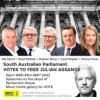 12pm Wednesday 27 September Frank Pangallo MLC will put a
12pm Wednesday 27 September Frank Pangallo MLC will put a 
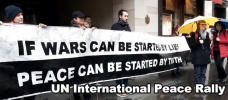 At a protest for Julian Assange, which commenced outside the Victorian State Library at 12:00pm on Sunday 28 September, protestors demanded that the Australian government use the power vested in it as a sovereign national government to make British Prime Minister Liz Truss end the illegal imprisonment and torture of Julian Assange.
At a protest for Julian Assange, which commenced outside the Victorian State Library at 12:00pm on Sunday 28 September, protestors demanded that the Australian government use the power vested in it as a sovereign national government to make British Prime Minister Liz Truss end the illegal imprisonment and torture of Julian Assange.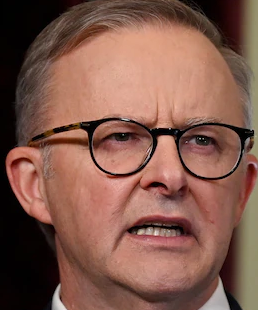 You can help build the protest by printing and distributing the A5 leaflet from which this article was adapted (
You can help build the protest by printing and distributing the A5 leaflet from which this article was adapted (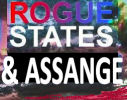 Nils Melzer’s book about the persecution of Julian Assange – Nils Melzer, The Trial of Julian Assange, A story of persecution,[1] must be heeded, due to Melzer’s extraordinary position and status as an independent international investigator and legal expert in complaints of torture and ill-treatment, [2] which has given him access to details and documents not previously available. That is probably why it is hard to get the book in Australia.
Nils Melzer’s book about the persecution of Julian Assange – Nils Melzer, The Trial of Julian Assange, A story of persecution,[1] must be heeded, due to Melzer’s extraordinary position and status as an independent international investigator and legal expert in complaints of torture and ill-treatment, [2] which has given him access to details and documents not previously available. That is probably why it is hard to get the book in Australia.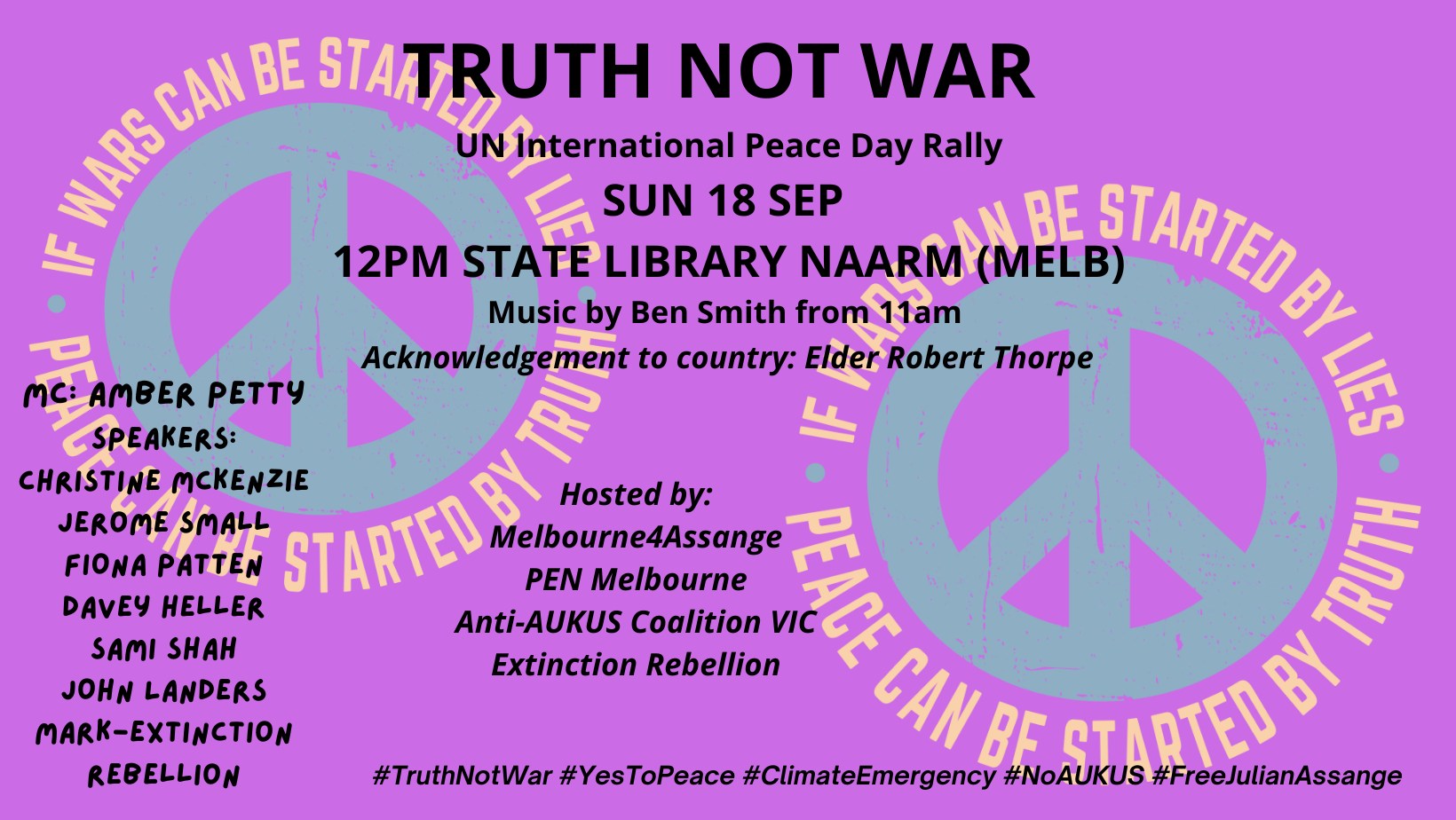
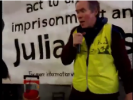 Australian Parliament, which sits next week from Monday 6 September, must be made, finally, to debate Julian Assange's fate. At the weekly vigil for Julian Assange outside Melbourne's Flinders Street Station in the evening of last Friday 26 August, James Sinnamon explained how, if Australian Prime Minister Anthony Albanese told the UK Prime Minister Boris Johnson to end its imprisonment of Julian Assange, he would almost certainly comply without delay, and Julian Assange would
Australian Parliament, which sits next week from Monday 6 September, must be made, finally, to debate Julian Assange's fate. At the weekly vigil for Julian Assange outside Melbourne's Flinders Street Station in the evening of last Friday 26 August, James Sinnamon explained how, if Australian Prime Minister Anthony Albanese told the UK Prime Minister Boris Johnson to end its imprisonment of Julian Assange, he would almost certainly comply without delay, and Julian Assange would 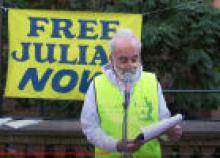 Inside is an interesting and lively video of the 141st week of protest at Sydney Town Hall in the name of justice for Julian Assange. As well as defending Assange, people use this as a platform about matters they feel are being suppressed. You may not agree with every assertion, but it gives us a good insight into what a lot of people are thinking.
Inside is an interesting and lively video of the 141st week of protest at Sydney Town Hall in the name of justice for Julian Assange. As well as defending Assange, people use this as a platform about matters they feel are being suppressed. You may not agree with every assertion, but it gives us a good insight into what a lot of people are thinking. Her Majesty the Queen is sitting on top of an explosive pile of stinking manure. Nils Melzer's book is like a bomb about to go off. How long can crooked judges and governments hide? How long can the mainstream press pretend that nothing's happening?
Her Majesty the Queen is sitting on top of an explosive pile of stinking manure. Nils Melzer's book is like a bomb about to go off. How long can crooked judges and governments hide? How long can the mainstream press pretend that nothing's happening? As a result of western crimes against Iraq, a person continues to serve time in prison. "Strangely enough, that person is not any of those who initiated the offensive on Iraq. Instead, he's the man behind exposing American crimes in places like Iraq and Afghanistan and Guantanamo Bay: A whistleblower called Julian Assange." Marzieh Hashemi, journalist and presenter of Secret Files.
As a result of western crimes against Iraq, a person continues to serve time in prison. "Strangely enough, that person is not any of those who initiated the offensive on Iraq. Instead, he's the man behind exposing American crimes in places like Iraq and Afghanistan and Guantanamo Bay: A whistleblower called Julian Assange." Marzieh Hashemi, journalist and presenter of Secret Files. From 12:30pm today at the Hiroshima Day protest in front of the Victorian State Library in Flinders Street in the Melbourne CBD, John Shipton, Julian Assange's father, will be speaking.
From 12:30pm today at the Hiroshima Day protest in front of the Victorian State Library in Flinders Street in the Melbourne CBD, John Shipton, Julian Assange's father, will be speaking. Discussion about the plight of the most famous and most revered Australian forbidden in your Parliament!? In 2020, the shadowy Parliamentary Selection Committee, which is controlled by the Labor Party and the Liberal/National coalition, refused to allow Tasmanian independent Andrew Wilkie MP to raise, for discussion, the plight of that most famous and revered Australian Julian Assange.
Discussion about the plight of the most famous and most revered Australian forbidden in your Parliament!? In 2020, the shadowy Parliamentary Selection Committee, which is controlled by the Labor Party and the Liberal/National coalition, refused to allow Tasmanian independent Andrew Wilkie MP to raise, for discussion, the plight of that most famous and revered Australian Julian Assange.
Recent comments